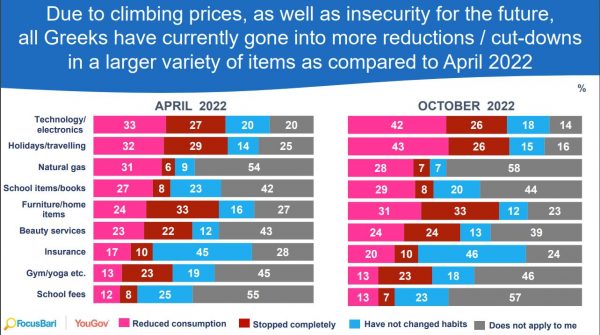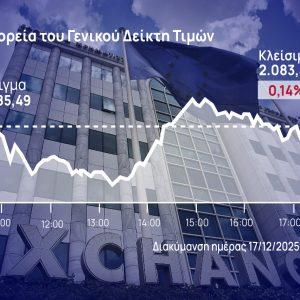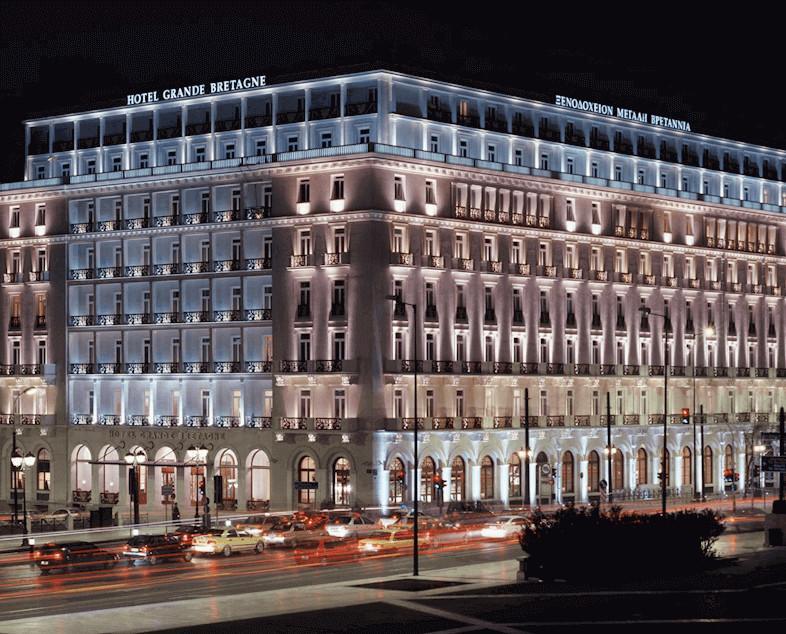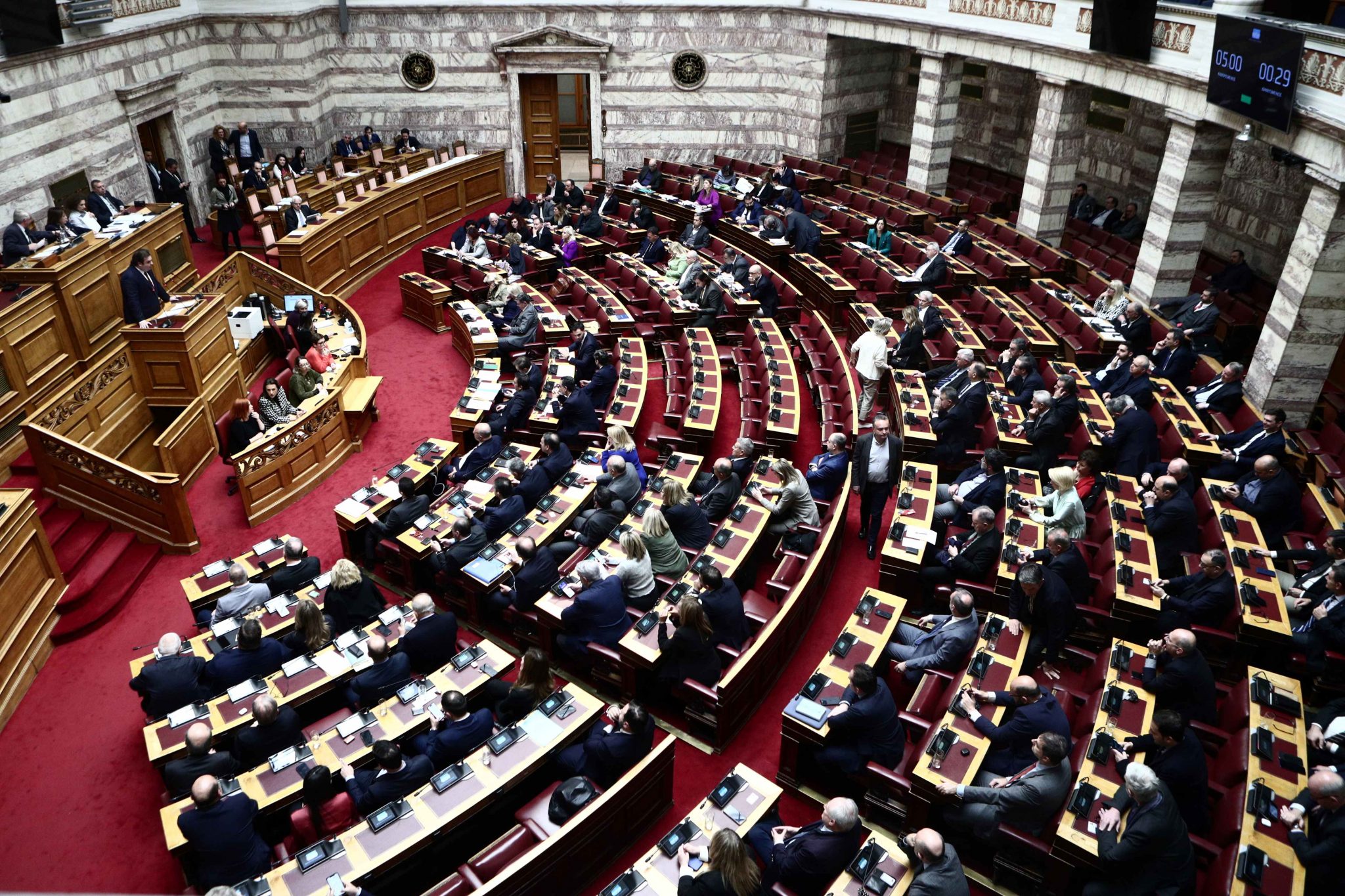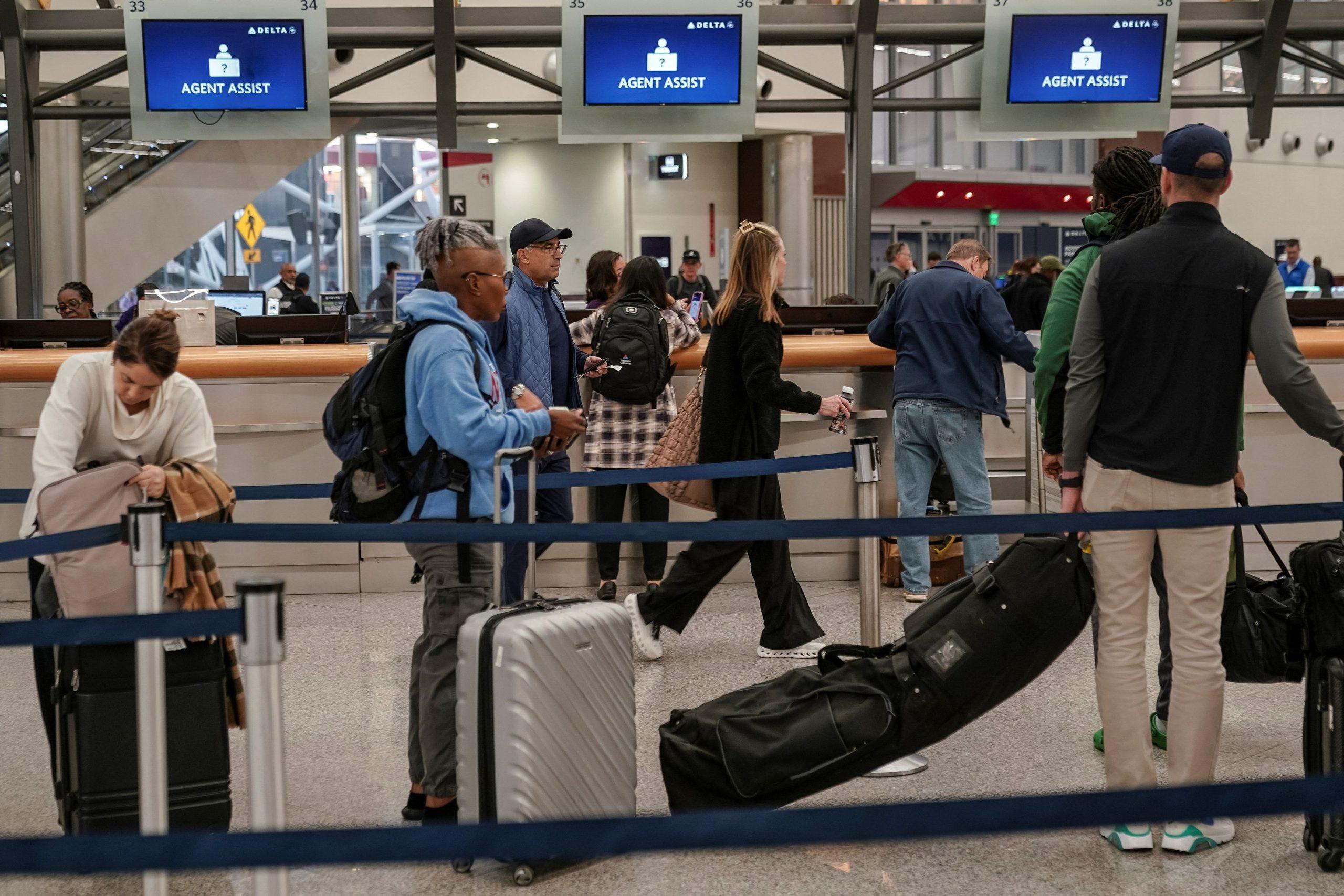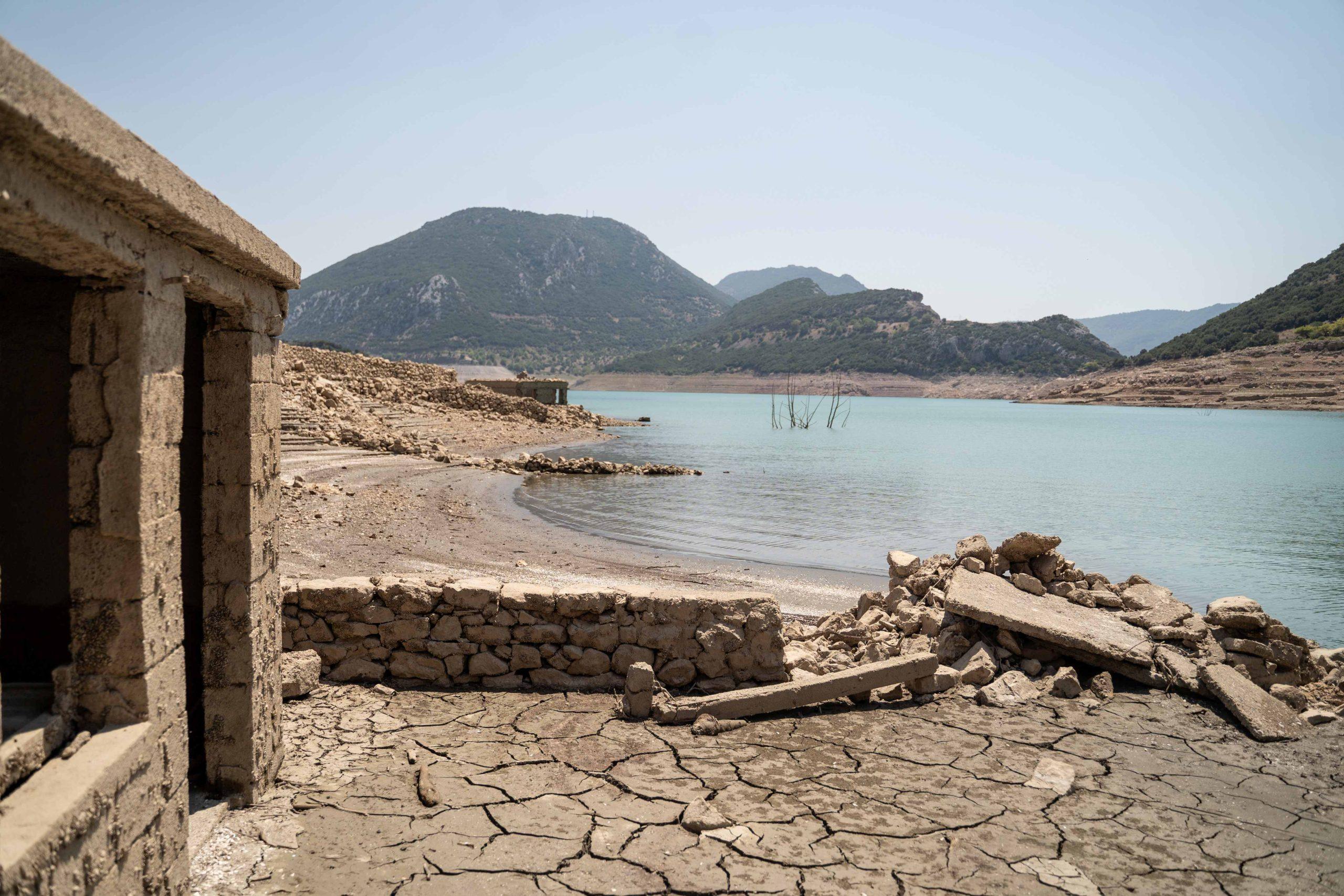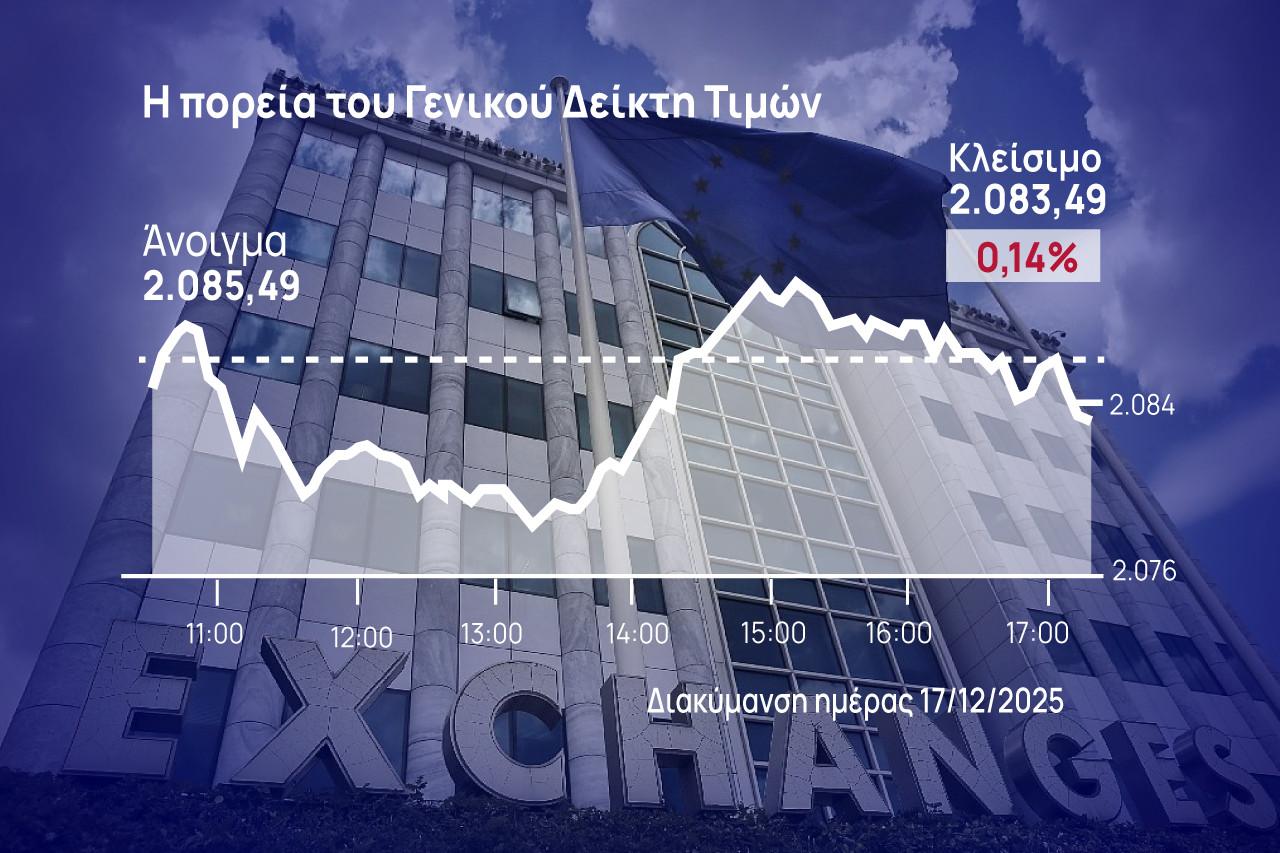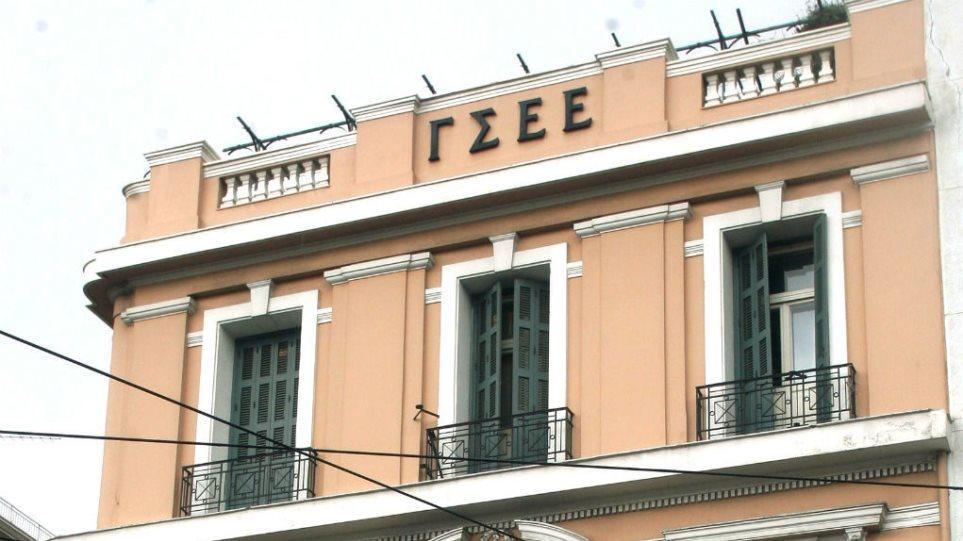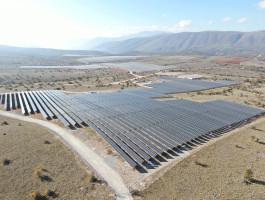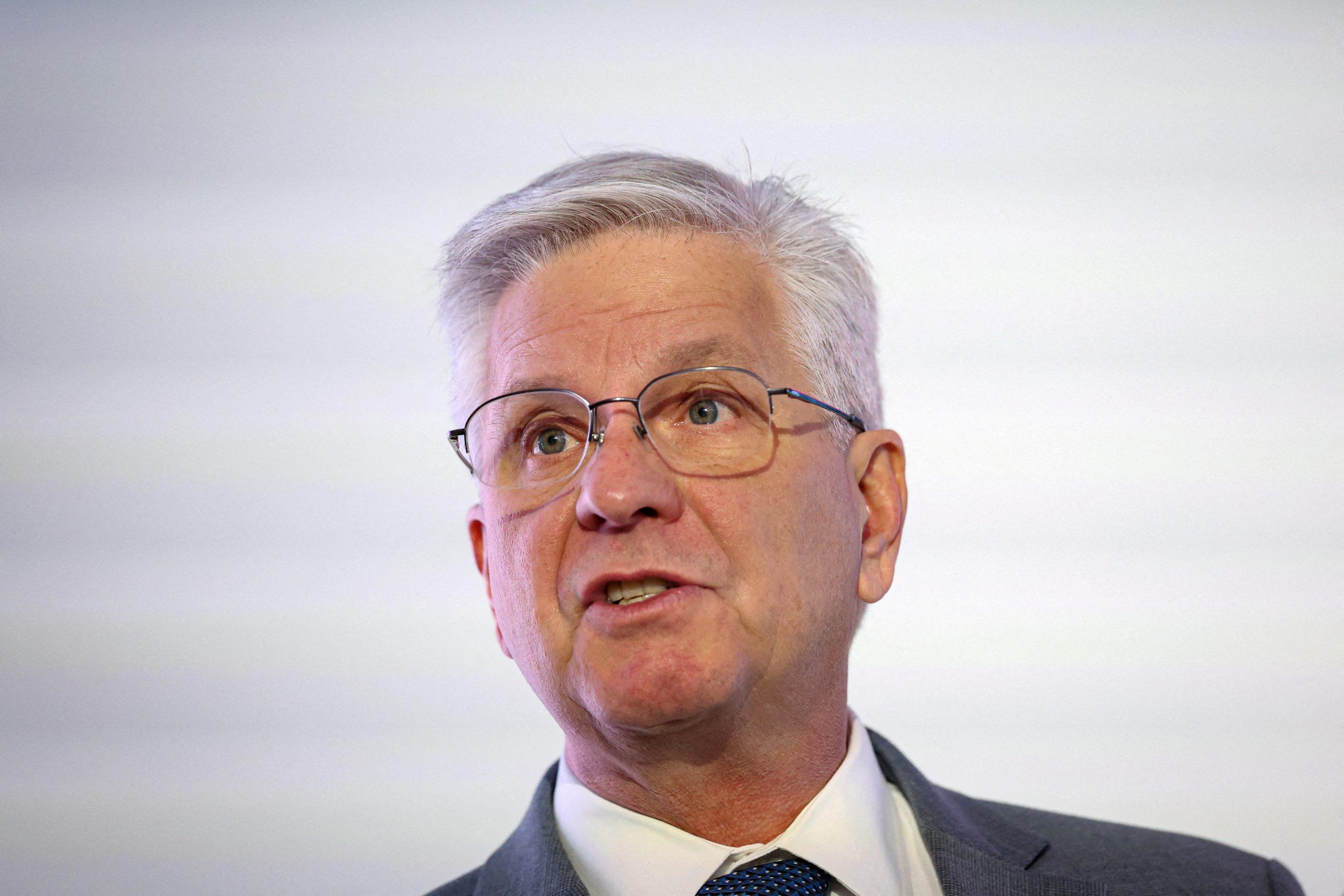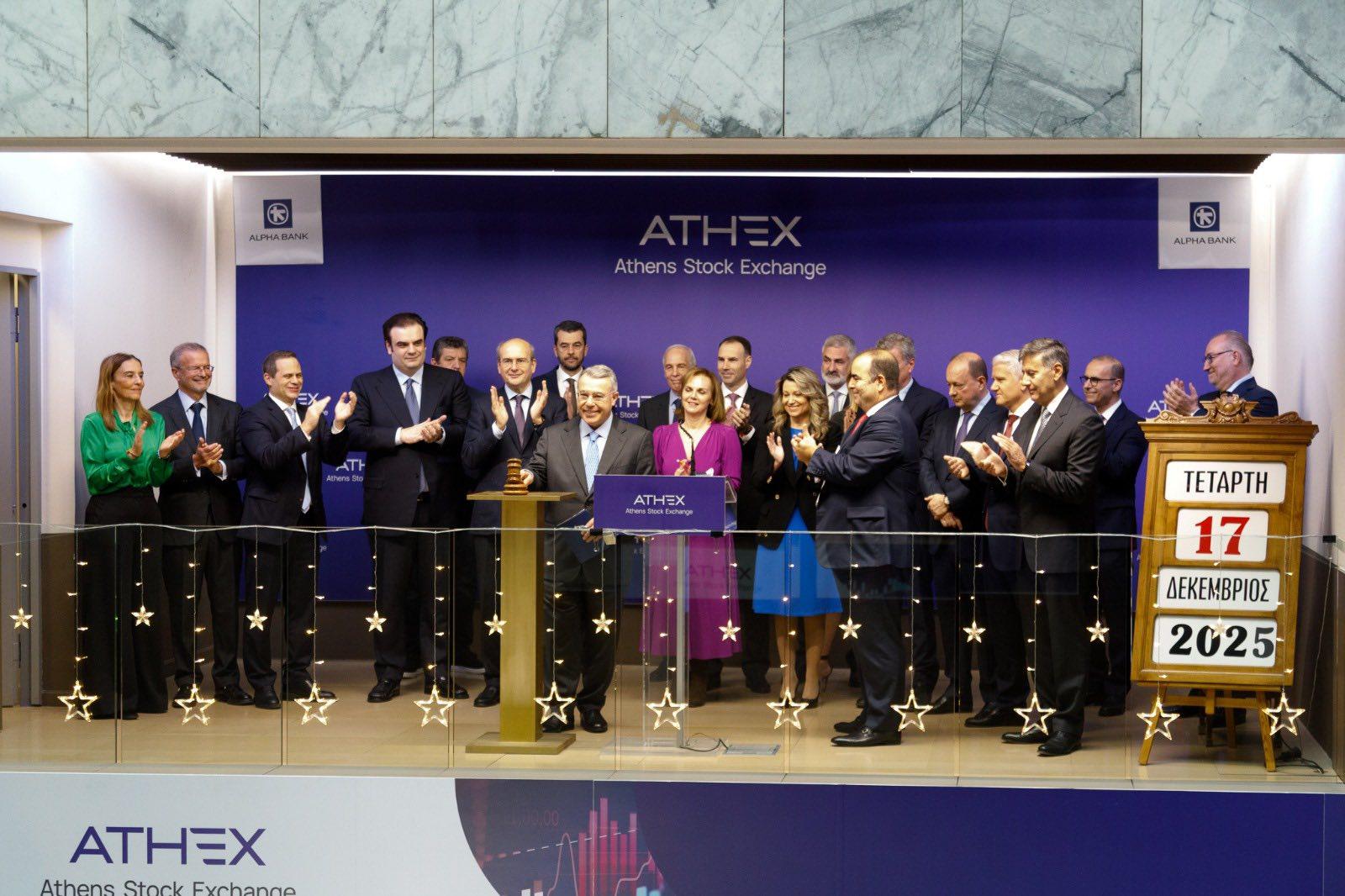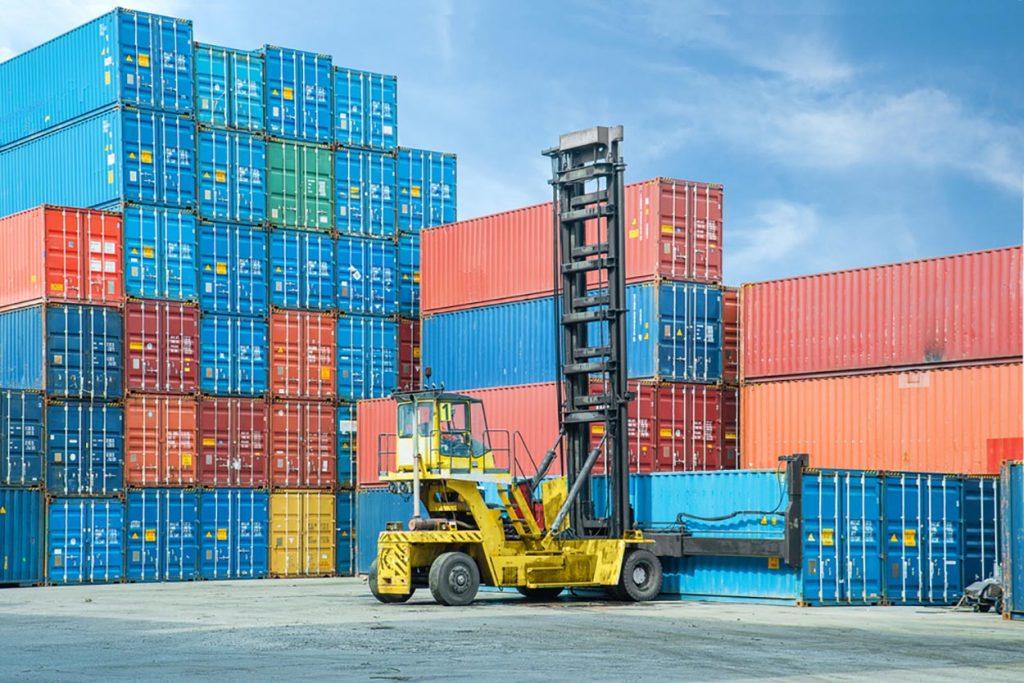Inflation, the economic situation of Greece and the energy crisis are the “top 3” of the concerns of Greeks today, 9 out of 10 declare that they are cutting back not just on products and services that satisfy their secondary needs, such as entertainment, travel and new clothes and shoes, but on basic necessities such as electricity consumption and shopping at supermarkets.
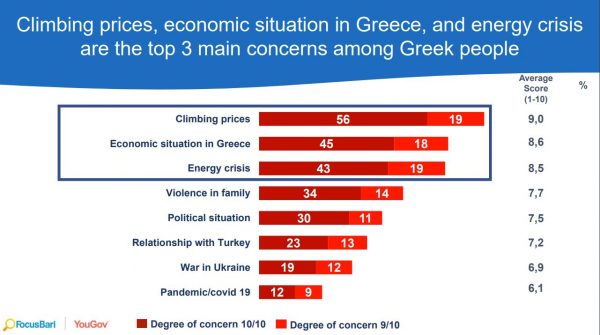
The impressive thing is that almost everyone declares that they have made at least one expenditure cut from the 18 items examined in the nationwide survey by Focus Bari | YouGov, primarily because their income is insufficient and secondarily for precautionary reasons!
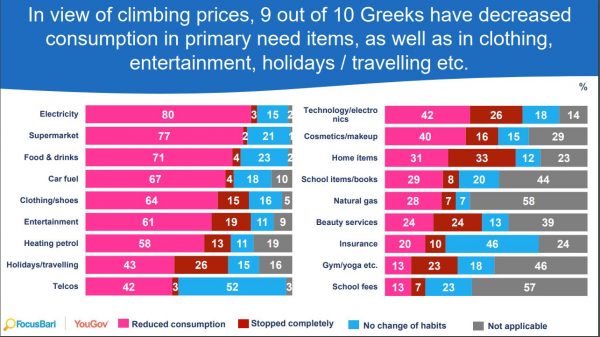
Equally interesting is the variation in the percentage of Greeks who say they are cutting back on their expenses to make ends meet. In April, 70% of Greeks said they had made cuts, while today, this reaches 97%: That’s basically everyone!
In April, 49% cut back due to insufficient income. Today, the corresponding percentage is 60%.
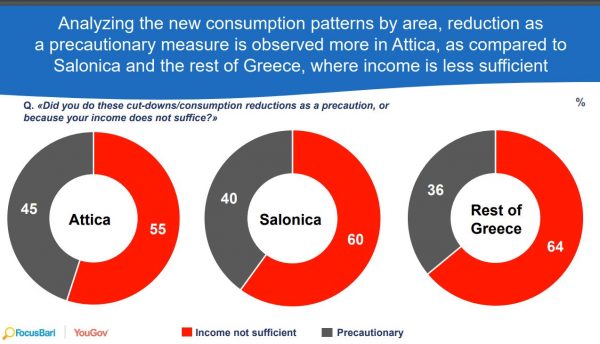
The areas in which it seems that the income for basic needs is more insufficient are in the rest of Greece and concern almost 7 out of 10, when the corresponding percentage in the area of Thessaloniki is 6 out of 10 and in Attica a little more than 5 out of 10.
Extreme price gouging everywhere
The great majority of Greeks consider that, apart from the prices of fuel, oil and supermarket items, the prices of almost all products and services have risen.
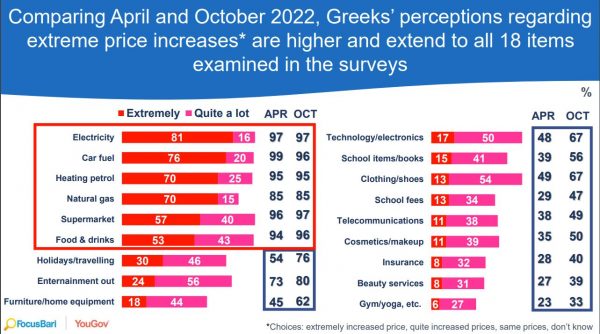
In fact, due to the galloping prices, but also the insecurity about the financial situation, all Greeks have made even bigger cuts today compared to April 2022.
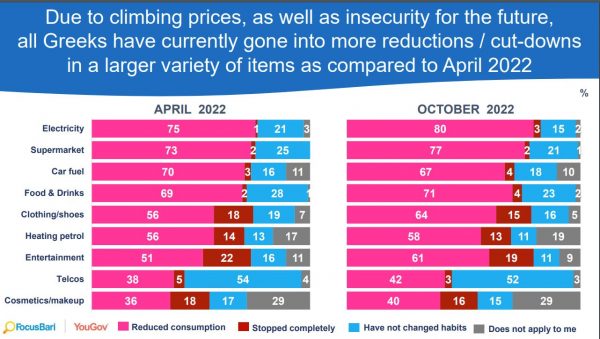
That is why they choose more economical ways of entertainment, fewer trips and vacations and a reduction in consumption in shopping and services.

What has changed in the last semester?
In order for consumers to “fight” for accuracy, they save on electricity, gas and oil, look for offers and discounts, and consider many different alternatives before making a purchase.
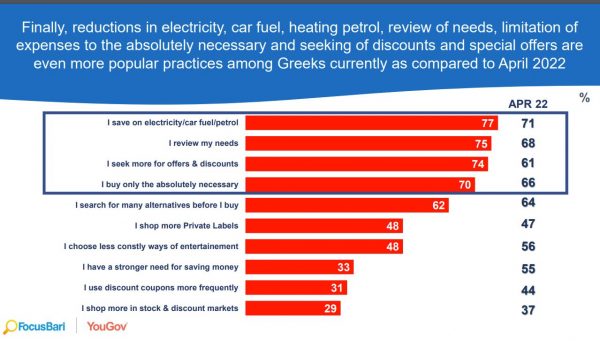
However, the option of buying the absolutely necessary, with what this may mean for the retail industry, is the one that has gained more devotees in the last six months.





